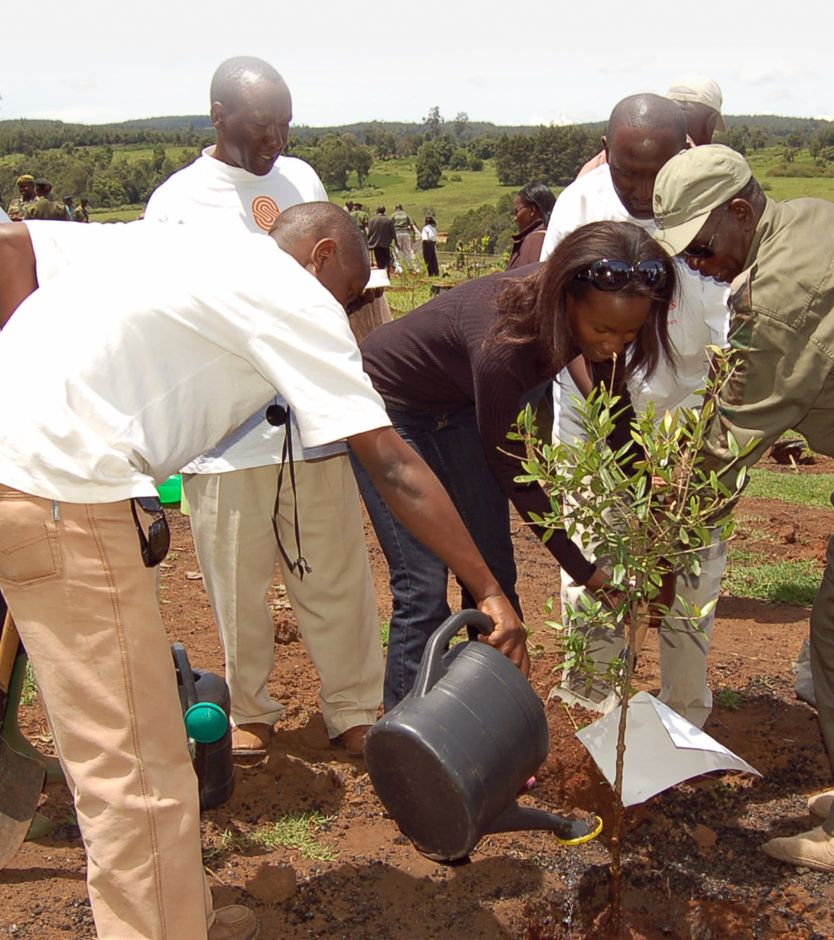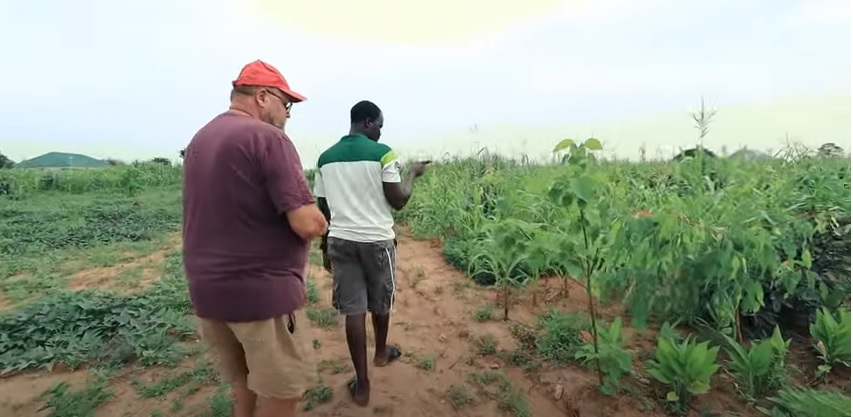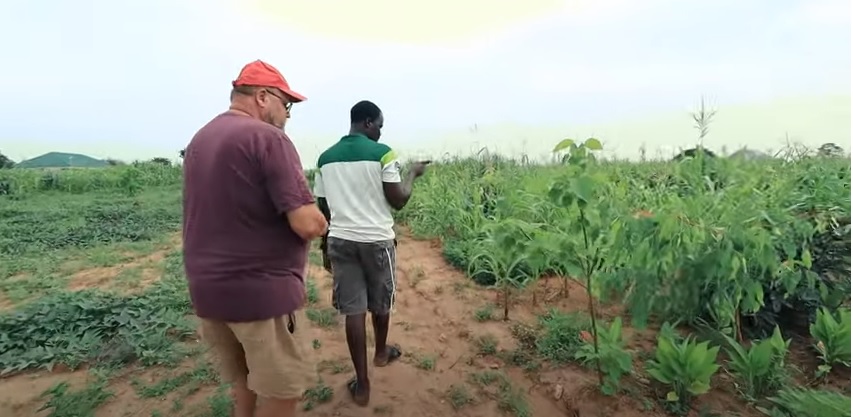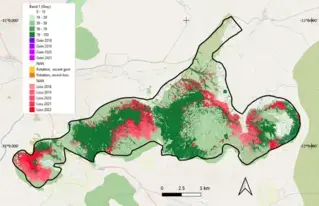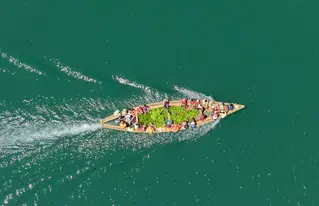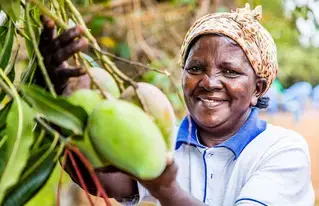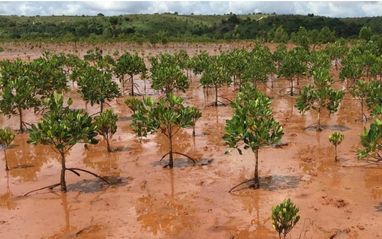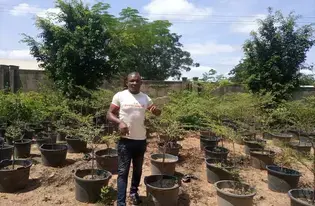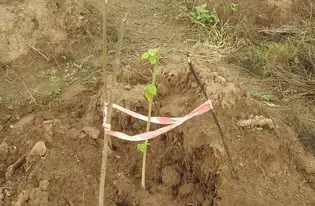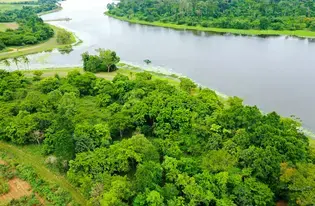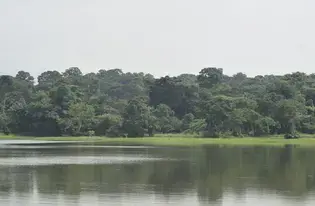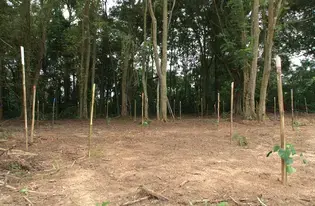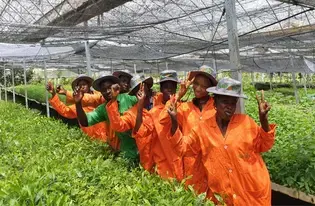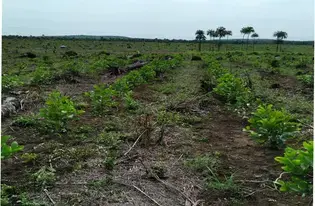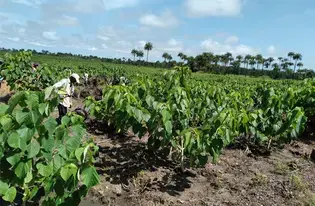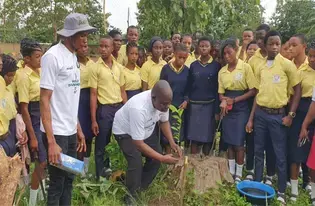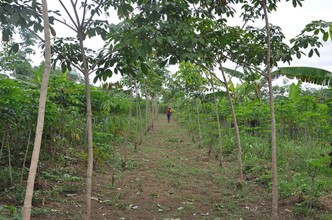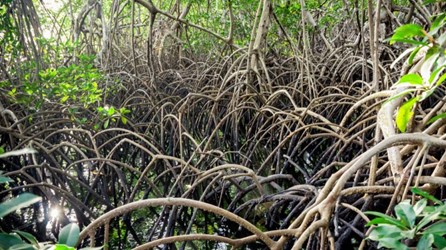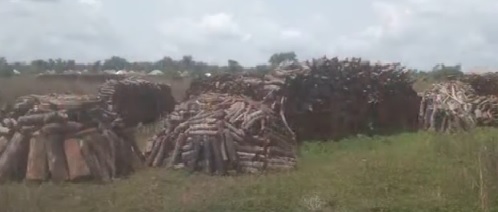Nigeria
June 2023
Latest Updates of Nigeria
Projects in Nigeria
Projects in Nigeria
Our Approach
Agroforestry for sustainable land management and food security
Agroforestry involves raising trees in combination with other agricultural enterprises including livestock and crops. Different species of trees are planted with many types of od crops in a variety of ways. The fast-growing trees are planted when land is fallow, or they can be grown at the same time as agricultural crops. In addition to providing fodder, fuel, wood and other products, trees in agroforestry system promote soil and water conservation, enhance soil fertility, and acts as wind breaks for nearest crops and other objects.Rehabilitation of Mangrove forests
Mangroves provide the best firewood, as people who roast fish know, but by cutting the wood, the mangroves disappear. And without the mangroves, water would flood our landscapes and houses in Nigeria. The need to restore mangroves inspired and shall involve projects that saw the whole community come together to plant more mangrove seedlings. “The positive effect is that it controls the level of water coming in from the rivers and allows us to use the creeks for fishing. And people can pick the unwanted branches of the mangroves in specific areas for firewood.”Gully restoration, catchment planning and management and livelihoods
In Nigeria, the gully restoration component was designed in parallel with catchment planning, soil and water conservation, as well as livelihood enhancement activities such as grants to community members to implement selected community sub-projects. This is generating income and/or providing skills that lead to employment opportunities or new start-ups to sustainable land management and livelihood for local communities.Alternative energy for rural areas
The use of firewood is the main driver of deforestation in Nigeria and there is a huge need for alternative sources of clean energy for cooking. In addition, wood fuel is still the main source of energy for cooking and heating for 56% of the population, thus nearly 30 million households and more than 100 million Nigerians depend on wood as a source of fuel for cooking. Although other sources of cooking energy are used in Nigeria, including liquefied petroleum gas (LPG), kerosene, and electricity, they are expensive compared to biomass, which is available at little or no cost. The experts are working on improving cook stoves and scaling up access to clean cooking fuels and technologies, and it has become a major priority on the national development agenda.
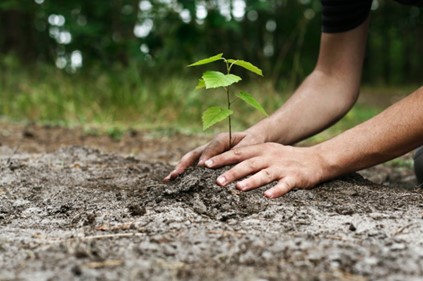
Steps to Success
Stakeholder involvement
Nigeria has established LDN working group and this include the following: (i) Senior government officials who are engaged in policy making and implementation of sustainable land management from the Office of the President on the Sustainable Development Goals (SDG); (ii) The various Ministries of Agriculture, Environment, Forestry, Mining, Transportation, Urban Development, etc., at both State and National levels; (Iii) Specific agencies and departments like the Department of Drought and Desertification, the Federal Department of Forestry, the Climate Change Agency, the Department of Erosion and Flood Control, the Federal Department of Agriculture, the Departments of Land Resources, Power, Works and Housing, and the National Bureau of Statistics and National Planning; (iv) Universities and other research institutions involved in Land Management and Agriculture, etc. v. Major International and Development partners such as UNDP, World Bank, FAO, IFAD, JICA; (vi) The National Assembly, Security agencies, International and Local NGOs were included and leveraged for effective implementation of LDN in Nigeria.
A coordinating mechanism/platform
To better coordinate implementation of the LDN targets cross sectors, a coordination mechanism/ platform will be established to further develop comprehensive tools for data collection, analysis as well as reporting. The LDN working group will form teams of facilitators and advisors to the coordinating team. Land restoration is the responsibility of all of us; many players including government, bilateral agencies and countries, UN, private sectors, CSOs and communities. It goes beyond administrative and social boundaries
Capacity building
The strengths, weaknesses, opportunities and threats to implement the UNCCD in relation to LDN in Nigeria are considered. The national focal point and the working group members organize series of capacity building trainings to increase knowledge in landscape restoration, sustainable use of natural resources as well as in monitoring the progress being made to address the weaknesses in order to fully achieve LDN by 2030.
The capacity building in key national and state institutions related to erosion and watershed management is also on the priority list of training programme in Nigeria.
Partnership
Implementation of the Land Degradation Neutrality requests for a strong partnership and close collaboration of the relevant stakeholders. The Government of Nigeria will coordinate the partnership through direct engagements of the partners in order to sustainably achieve the LDN targets for the country. The country has already taken bold steps to halt land degradation and desertification, and under AFR100 partnership, the government hopes to meet its Nationally Determined Contributions, Land Degradation Neutrality targets and the Economic Recovery and Growth Plan of Nigeria.
The Federal Government of Nigeria appreciates the effort and contribution of the private sector to the development of the country, especially in the area of their social responsibility. Land degradation is a serious and enormous problem that government alone cannot tackle as it affects life, food and livelihood of the people. It is on this note that the Government of Nigeria calls on the private sector and other stakeholder to contribute to the efforts to achieve LDN by 2030.
Key Milestones
- Nigeria’s Agriculture Promotion Policy 2016-2020
- National Mining Policy
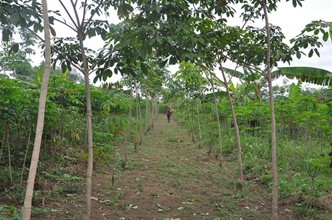
- National Economic Recovery Growth Plan (NERGP) 2017-2020;
- National economy recovery growth plan

- Nigeria’s ecological fund;
- Report of the Land Degradation Neutrality Target Setting Programme

- Nigeria Planted 10 million Trees Nationwide

- Policy Framework for the achievement of Land Degradation Neutrality;
- Tracking of land use, land use changes and other environmental variables in respect of National Reporting on progress made towards achievement of SDG 15.3
- Restoration of 8,551.61 ha of degraded land/forest ecosystems under Presidential Initiatives of planting 25 million trees nationwide;
- Increase of arable land from 90 ha in 2019 to 6,007 ha in the second quarter of 2022.
- Restoration of 600,000 hectares of degraded areas (Country wide)

Our Vision
Nigeria envisions to achieve LDN by 2030 as compared to 2015 (no net loss) and improve an additional 20% of the national territory (net gain).
Priority Interventions:
- Change the narrative on forest and land degradation in a country with a very high population growth rate and pressure on the land due to agriculture, housing and urban development, industrialization and transportation among others.
- Restore and revitalize the ecological productivity of land, water and agriculture for sustainable livelihoods.
- Strengthen regional collaborations, expand opportunities for funding, research and capacity development to engage a broad spectrum of stakeholders in achieving restoration on the ground.
- Secure and improve livelihoods of millions of households in the drylands where excessive land degradation threatens the ability to cope with the effects of climate change.
- Achieve the total elimination of natural resource-based conflicts arising from land degradation, especially due to over-grazing and other unsustainable land management practices, which have been a major driver of clashes across the country.
- Accelerate economic diversification and industrialization by improving the socio-economic situation in Nigeria through re-awakening forest-based industries for employment, poverty reduction and wealth creation.
- Explore wider opportunities for engagement with the private sector to move Nigeria’s forest and landscape restoration agenda forward.
